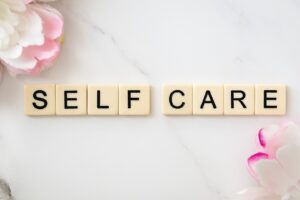Our emotions are a fundamental part of the human experience. When we are in tune with our emotions and can regulate them, we can effectively communicate without hurting people’s feelings. This is an important goal for most patients as they will often find themselves hurting others, hurting themselves, or turning into unhealthy ways for coping.
An important step in improving our communication skills is to learn how to regulate our emotions. Regulating our emotions means having the ability to identify the feelings, understand where they come from, and then be able to express our thoughts, feelings, and needs in a direct and peaceful manner.
This first step of emotional regulation is crucial and can be the root of many problems in our relationships and within ourselves. We may be afraid to confront our true feelings and might be carrying things from the past that are unresolved. In the book, “The Seat of the Soul” by Gary Zukav, he beautifully describes how there is a spiritual purpose to our life journey and our emotions can be used as guides. This is a deep depiction of how we can view our emotions, instead of being afraid of them and running from them. Both positive and negative emotions hold equal value in learning how to experience them in our bodies without repressing or avoiding them.
If this area is of interest to you, here are some ideas you can start implementing and see how your work develops.
A few disclaimers first:
-
- Emotional regulation is a skill, the more you practice, the better it gets.
- In the beginning, the practice might feel foreign or weird if you did not grow up in a family or have not learned this skill.
- I find writing things down to be helpful – whether in a journal format or notes section in my phone for quick access.
- If identifying feelings or thinking of what is causing you to feel this way becomes too overwhelming, I would recommend support or guidance.
How to start getting to know your emotions:
-
- I recommend check-ins with yourself at least 3 times a day. Preferably, in the morning when you wake up, at midday and at night.
-
- Ask yourself, “what is the emotion I am feeling right now?” and assign it a word.
- Write it down in a journal, a book, or a notes app on your phone if you are on the go.
- Ask yourself, “where do I feel this emotion in my body? Where is it located? Is in my stomach, throat, chest, etc.?”
- We want our body and brain to start connecting feelings to words.
-
- After a week or so, look back at your notes and see if patterns start to emerge.
-
- Is it anxiety? Is it more anger? Is it a past event that keeps coming up?
-
- Observe the emotion but do not judge yourself for having that emotion.
-
- Imagine it is in a cloud and it floats away or imagine it is a chapter in a book and you can figuratively put the chapter away.
- Let the emotion be what it is without making sense out of it at that moment.
- See how long you can tolerate the emotion without wanting to avoid, distract or think of something different.
-
- Understand where the emotion is coming from.
-
- Write it out or think about where you have felt this way in the past.
- Does this emotion serve a purpose in your life?
-
- Dealing with feelings can be overwhelming and exhausting, especially at first, therefore, having a healthy outlet is important. Physical exercise, yoga, or breathing exercises can help.
- Find compassion for sitting with yourself to have this practice. Start over and repeat until this gets easier and faster.
- I recommend check-ins with yourself at least 3 times a day. Preferably, in the morning when you wake up, at midday and at night.
We can only repress or stuff our emotions to a certain extent before they come out on their own. Unfortunately, they can come out hurtful in nature. We may put too much pressure on ourselves to resolve everything at once, so be kind and patient in this process. As this skill improves, we can communicate effectively and reduce hurtful conversations with our loved ones.
Be well and trust in the process of becoming a better version of yourself.
Best,
Evelin Lemus, MFT





Recent Comments